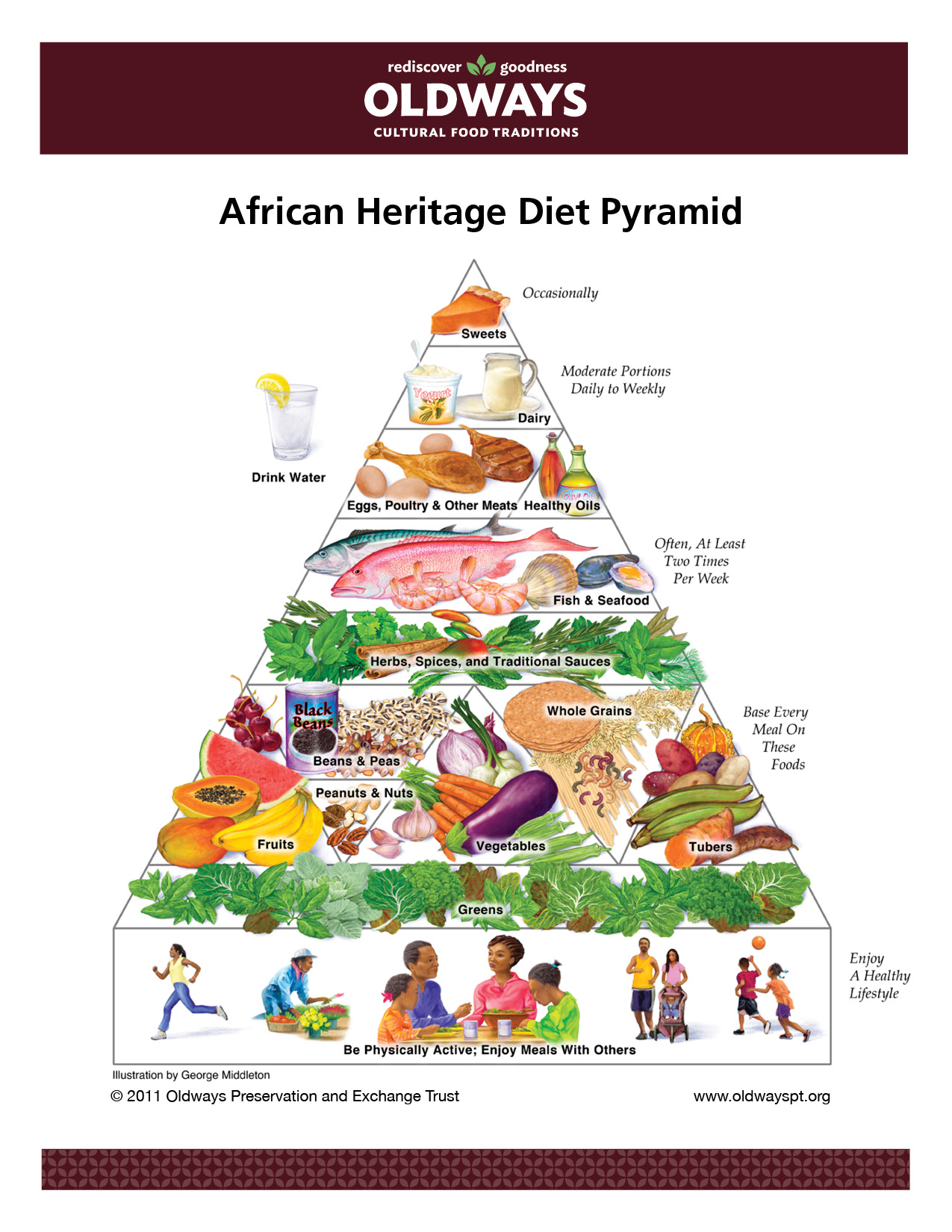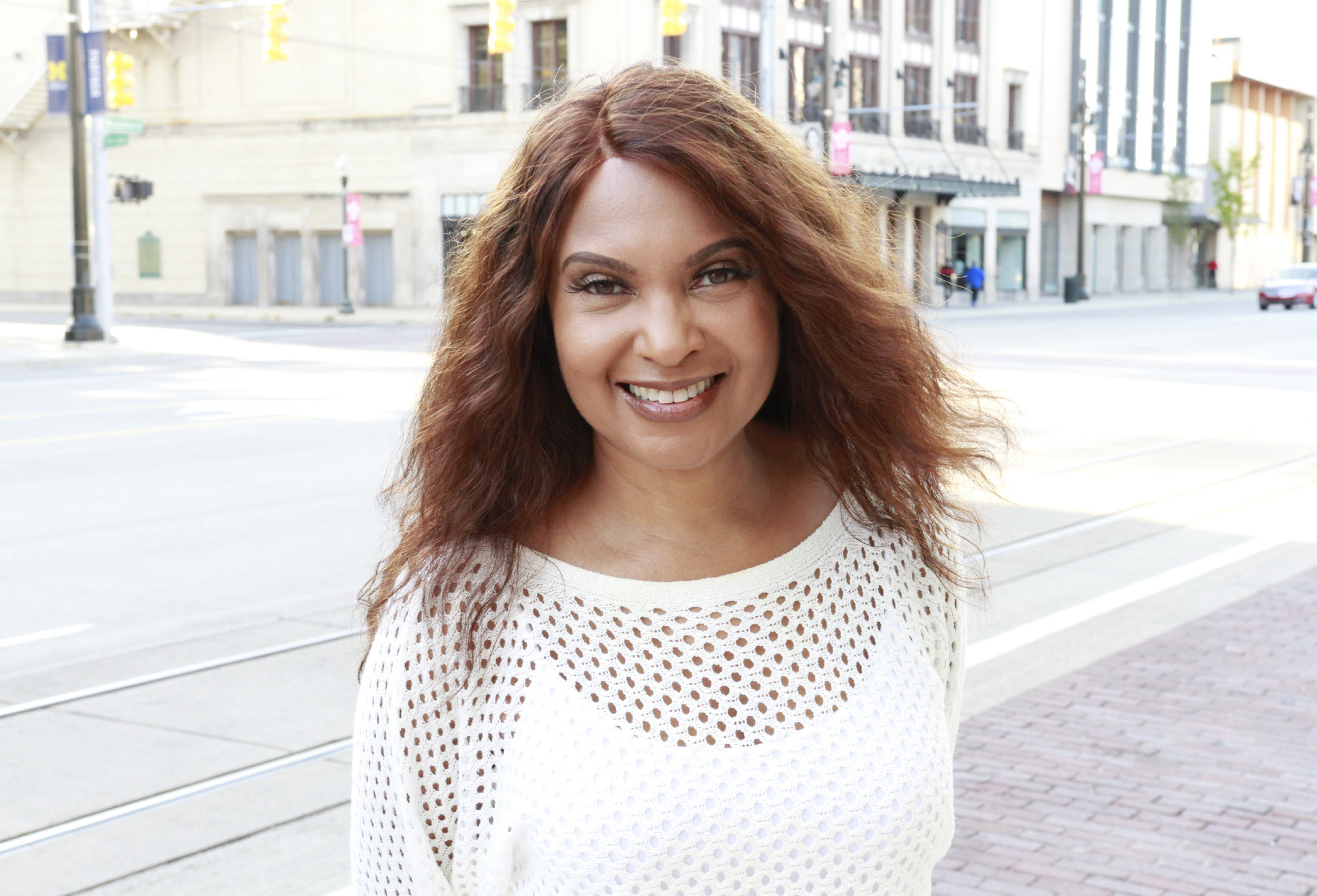Share This
With a PhD in Nutritional Science and an MA in Sociology, Akua Woolbright has been a healer and a strong ambassador for community health elevation for many years. Dr. Woolbright is one of Oldways’ esteemed African Heritage and Health Advisory Committee Members, and her expertise continues to inform our programs today. We recently caught up with Dr. Woolbright to learn more about her current work as the nutrition program director for Whole Cities Foundation, and how culture informs nutrition education. (Interview below has been edited and condensed for clarity.)
- How does Whole Cities Foundation work to increase access to fresh, healthy foods and quality nutrition education?
Whole Cities Foundation helps to increase equitable access to fresh, healthy foods through our grant programs and community partnerships. I developed our signature nutrition program which teaches people how to harness the healing power of plant-based foods. Through our Let’s Talk Food Program, we build trust and rapport with our participants and meet them where they are along their personal wellness journeys. We believe in people’s resilience and ability to make bold changes that go beyond watered-down messages of “portion control” and “moderation.” Classes cover a wide variety of topics that empower individuals to reach their health and wellness goals. Participants are losing weight and keeping it off, reducing their medications, regaining mobility, and feeling more energetic. As an African American nutritionist, I feel honored to have this opportunity to work with Whole Foods Market, and now Whole Cities Foundation, to bring the message of “food as medicine” to communities of color.
- What role does culture and tradition play in your nutrition programs?
The messenger is as important as the message. To be most effective in helping people make dietary changes, it is important that the person delivering the content knows how to coach and connect with their audiences. It’s easier when the teacher and students share similar backgrounds and experiences. It is from this foundation that we can build trust and rapport. It all hinges on how we make people feel. It’s about how they see us, the program, the information we’re sharing, and ultimately, themselves. Participants must have faith in the solutions we are offering and believe they are right for them. We need more nutrition and health educators who reflect the communities we are trying to serve.
I am often asked if I discuss the importance of culturally relevant foods in my program. That is not the primary focus of my work because, while we all have our favorite cultural foods, we also tend to eat across different types of cuisines (i.e. Mexican, Cajun, Chinese, Thai, Italian, Mediterranean, etc.). I teach my participants how to apply the fundamentals of healthy eating and make nutritious choices no matter which foods they enjoy. At the same time, I do believe it is important that we learn more about our African heritage and food customs. I often bring in chefs to conduct lectures and cooking demonstrations that feature African and Caribbean ingredients and dishes. Oldways is beneficial to the elevation of this work because we can use its African heritage model to learn more about the diaspora through foodways. Connecting to the historical and cultural significance of certain foods is such an inspirational way to get excited about exploring new, healthy options.
- What is your relationship to the African Diaspora?
I am extremely proud to be an African American and to share my consciousness and perspective with Whole Foods Market, Whole Cities Foundation, and the communities I serve. As an African American nutritionist, I feel a particular responsibility to make sure people who look like me have equal access to quality nutrition information and support. I strive to be a go-to place for trusted and sound evidence-based recommendations.
I had a chance to visit Ghana, West Africa, where I learned about foodways, nutrition interventions, and childhood malnutrition. I lived with a host family of traditional medicine men and spiritual healers, toured children’s hospitals, studied local foods and natural remedies, and met with dietitians and health practitioners. It was a transformative experience, which continues to influence my work.
- What does the term “African Heritage Foods” mean to you?
To me, the classification of African heritage foods varies based on which part of the world you’re in. For many African Americans, a common point of reference is soul food or southern cuisine, which can differ drastically from state-to-state. When we look beyond the south, to the Caribbean, South America, and Africa, the foods become as diverse as the people. This is what makes the exploration of African heritage foods so much fun. For individuals looking to learn more about their history and add a wider variety of options to their diets, exploring foods of the African diaspora offers limitless possibilities.
- Nutrition research often lays the groundwork for nutrition programming, yet studies don’t always represent the most diverse perspectives. What are the research gaps that should be prioritized to address health inequalities within the U.S. Black population?
I would like to see more research about African American health beliefs and behaviors. Nutritionists and other health professionals often make sweeping assumptions and generalizations about this population. For instance, I have been told that my approach is too ambitious for black urban communities because these people will be unable to adopt and maintain a plant-based diet. The argument is that individuals in these communities are not compliant with their daily pill regimens, regular doctors’ visits, and annual screenings, and therefore, could not possibly make major lifestyle changes. I do not believe it is our place to decide. It is our responsibility as health professionals to give everyone the same nutrition information and provide people with the tools and support they need to make the behavioral changes they desire. We must address our biases and conduct more accurate assessments of a community’s readiness and capacity to change.
- Can you share a cooking or nutrition tip with our readers that you incorporate in your day-to-day life?
I teach people to follow the mantra “whole foods, plant based.” By whole foods I mean eating foods that are made by nature and not by man. These are foods your great-great-great grandmother could’ve found in her natural environment and prepared in her home kitchen. A plant-based diet is centered around a wide variety of produce, including green and colorful vegetables, fruits, whole grains, legumes, and just a few nuts and seeds. When you eat this way, your food becomes micronutrient dense. Whole, plant foods are naturally packed with the vitamins, minerals, antioxidants, and phytonutrients your body requires for optimal health and longevity; and contain less of the things you don’t need like excess calories, dietary cholesterol, and fat. Your food becomes medicine.




Comments
Add a Comment